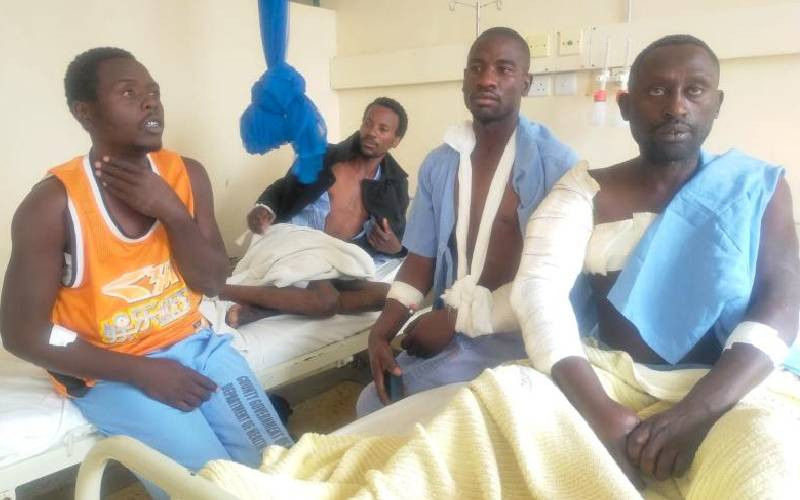
This is what is happening: The regime is preparing the ground for returning to the old style authoritarian government.
It is saying "We tried reasonably and by polite means. We travelled to Nairobi, we even went to Kisumu. We requested them to stop Mwandamano in the national interest. But they did not listen. Instead, they repeated it even more, resulting in deaths, disturbances and loss of Sh202 million."
The regime says, "I have done my best. Now I have to protect the nation. I shall now take all necessary steps." This is the excuse to establish openly the apparatus of an authoritarian state.
And thereby to remove any credible political opposition to it, and allow it to rule without any functioning checks. This regime speaks and acts as if there has been no change in the Constitution or the mind of Kenya. They still speak now in this old Kanu language, thus showing themselves to be of the same Kanu mind; of not wanting any disagreement from anyone or any questioning of what they are doing, or any demands of accountability, and a readiness to shoot at unarmed Kenyans.
All this was the language and way Kanu ruled in the 1980s and 1990s. But the new Constitution's language is the complete opposite. The people's participation is a national value at each stage. (Art.10(2)(a).
The regime says this police violence is in 'the national interest'. It is really to keep themselves in power. But this is not the 1980s and 1990s. There are two new factors: a new Constitution. And new Kenyans.
The regime's excuse for the repression is its political opponent, Raila Odinga. But the real cause of continuing demonstrations is best stated by their own supporters around the Mountain: "... groups including the church, business owners and opinion leaders who largely voted in supported of Kenya Kwanza Alliance during the last General Election, said President William Ruto should address the real issues of concern without using Raila as a scapegoat." (The Standard, 16 July 2023, page 23).
When their leader called them to State House his followers did not pledge to him that they would now do more to bring down prices. They pledged to him that they would now do more to counter the protests. This meeting was attended by 241 governors, senators and MPs. Not one of them had the courage to say the issues were the cost of living, petrol prices and increasing repression.
This is the most serious consequence for our country. Once again, that our governance by 241 key persons depends not on their constituents' interests but to ensure they themselves do not fall into the disfavour of one man. This is called one-man rule.
Kenya would be destroyed as a nation if we let it return to one-man rule. Last week, the regime sought to arrest Raila. Only pressure from within the Cabinet prevented this grave misstep. To arrest Raila is an admission the actions of the police against the crowds is really directed to the removal of Raila from political scene, as his arrest cannot bring down price of petrol.
What then is the manner of governance that this regime believes in? Are live bullets, the detaining of a person chained to a lamppost and torturing him in the ear and eye, abject sycophants for MPs and governors, a manner of constitutional governance?
Obviously not. The excessive responses of this regime are clearly unconstitutional. Young people today may not be aware that the leader of this regime had opposed the new Constitution. In 2010, when the draft was put to a Referendum, he campaigned for its rejection. He said it would divide people.
Not so. Events are showing it was because he understood that the new Constitution would prevent one-man rule ever again. Now in power, he has to reverse constitutional barriers to this.
This is being attempted by ignoring the Constitution, returning to the armed and punitive use of the police, bringing back the Provincial Administration style, and disobeying court orders of the very courts which the regime says confirmed its office. This is not restoring law and order, this is usurping people's freedoms rights and protections.
The new Kenyans see this. It is becoming clear to all that the Constitution is not the manifesto of the regime. But the Constitution is the manifesto of the new Kenyans.
The writer is a senior counsel

